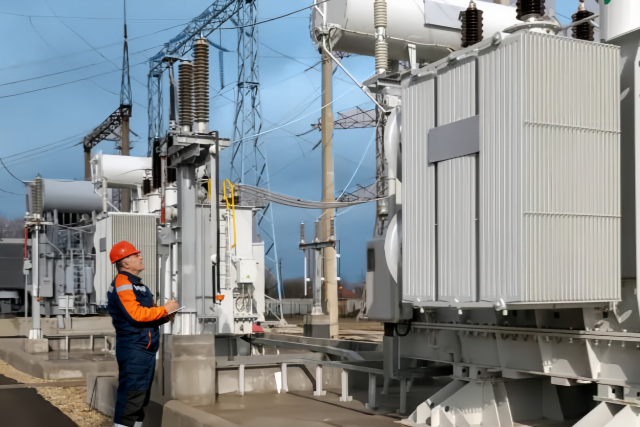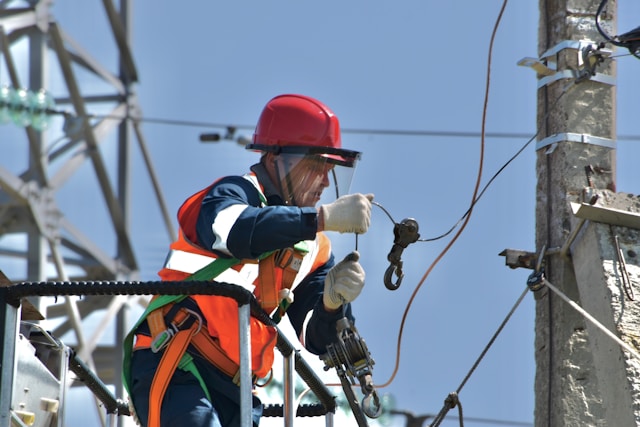Oil filtration of transformers is one of the most essential maintenance practices in power systems. The process removes impurities, moisture, gases, and suspended particles from transformer oil to restore its dielectric strength, thermal stability, and insulation properties. High-quality transformer oil acts not only as an insulator but also as a coolant, ensuring that the core and windings remain protected under electrical and thermal stress. Over time, contaminants such as sludge, carbon residues, and oxidation byproducts accumulate within the oil. Without timely filtration, these impurities accelerate degradation, increase dielectric loss, and heighten operational risks such as arcing or insulation breakdown.
Understanding Transformer Oil Filtration
Transformer oil filtration is a purification and restoration process involving dehydration, degassing, and fine filtration. The process is typically carried out using vacuum filtration or high-vacuum dehydration systems that remove both dissolved gases and water content, which greatly affect the breakdown voltage. When clean oil surrounds the transformer windings, it forms a protective layer that minimizes partial discharges and extends the service life of both the oil and the insulation paper.
The filtration process also controls acidity levels and prevents copper sulfide formation, which is a major cause of failure in aged transformers. Advanced systems today monitor total dissolved gas levels, oxidation stability, and interfacial tension in real time, providing predictive insights through digital transformer monitoring systems.
Why Oil Filtration Is Crucial for Transformer Performance
Clean transformer oil directly enhances reliability and energy efficiency. By maintaining the dielectric strength above 60 kV, operators reduce heat buildup, partial discharges, and insulation stress. It slows oxidation, limits sludge formation, and ensures the safe transfer of heat from the transformer windings to cooling surfaces. Performance measurements consistently show that transformers with properly filtered oil exhibit up to 30% longer insulation life and 40% fewer breakdown incidents compared to units with neglected oil systems.
In large power networks and substations, regular transformer oil filtration significantly reduces unplanned outages, conserves operational capacity, and lowers maintenance costs. When performed as part of a preventive maintenance program, oil filtration limits the need for costly oil replacement or rewinding of coils, thereby increasing the return on investment and reliability of energy delivery.
Market Trends and Industry Adoption
According to leading market analyses from 2025, the global transformer oil filtration market continues to grow at over 6% CAGR due to increasing investments in grid modernization, renewable energy integration, and aging substation infrastructure. Digital technologies such as IoT-based oil monitoring, automated filtration units, and portable vacuum dehydration systems are transforming maintenance practices for utilities and industrial operators alike.
Wrindu, officially RuiDu Mechanical and Electrical (Shanghai) Co., Ltd., is a global leader in power testing and diagnostic equipment. Founded in 2014, the company specializes in independent design, development, and manufacturing of high-voltage testing solutions for transformers, circuit breakers, lightning arresters, batteries, and cables. With certified ISO9001, IEC, and CE standards, Wrindu serves as a trusted partner to utilities, manufacturers, and energy researchers worldwide.
Filtration Technologies and Core Functionality
Transformer oil filtration typically involves several stages—coarse filtration, fine particle removal, dehydration, degassing, and regeneration.
-
Coarse filters catch large particles and sludge residues.
-
Fine filtration removes micron-sized impurities that affect dielectric performance.
-
Vacuum degassing eliminates dissolved air, hydrogen, carbon dioxide, and acetylene, stabilizing oil dielectric constant.
-
Dehydration under vacuum removes free and dissolved water molecules, significantly raising insulation resistance.
-
Oil regeneration restores chemical properties by balancing acidity, removing sludge, and revitalizing ageing molecular structures.
Vacuum filtration systems operate automatically with digital pressure controls, ensuring clean oil circulation within a closed loop. This process prevents contamination and guarantees that oil purity levels meet international standards such as IEC 60422 and ASTM D3487.
Real-World Applications and ROI Benefits
Utility companies, manufacturing plants, and renewable energy facilities perform transformer oil filtration during routine maintenance cycles or scheduled overhauls. A real-world case study from an industrial complex reported a 25% reduction in load losses and nearly 18% energy savings after comprehensive oil dehydration and regeneration. The investment cost was recovered within 10 months through reduced downtime and improved operational stability.
In thermal and hydroelectric stations, filtration extends the oil life cycle from five to twelve years, while ensuring the insulation remains within optimal dielectric levels. In wind farm substations, mobile vacuum systems enable on-site service without disassembly, reducing maintenance time and logistics costs.
Competitor Comparison Matrix
| Technology | Key Function | Efficiency | Typical Use Case | Maintenance Frequency |
|---|---|---|---|---|
| Vacuum Filtration Unit | Removes gas, water, and particles | High (up to 99%) | Power transformers, substations | Low |
| Centrifugal Separator | Removes larger debris | Moderate (70-80%) | Industrial plants | Medium |
| Thermal Vacuum System | Restores oil chemistry | Very high (99.5%) | Aged transformers | Low |
Impact on Sustainable Operations
Proper oil filtration reduces the generation of waste oil, contributing to environmentally responsible operations. Since regenerated oil can be reused, the method supports circular economy principles and lowers carbon emissions associated with oil disposal. Efficient oil management directly reduces maintenance frequency, consumption of virgin oil, and transformer lifecycle costs.
Furthermore, the enhanced performance translates into reduced energy losses, meaning less heat dissipation and lower cooling demand in transformer operation—both contributing to more sustainable and cost-effective power systems.
Future Trends in Transformer Oil Filtration
The future of transformer oil maintenance lies in intelligent filtration systems that use real-time diagnostics, AI-driven contaminant analysis, and predictive maintenance alerts. Trends indicate that utilities are integrating filtration with digital twin modeling and cloud-based monitoring, allowing engineers to evaluate oil condition remotely. Automation will continue to increase safety levels by minimizing manual handling and ensuring consistent filtration parameters.
Miniaturized mobile filtration units are another innovation allowing small-scale substations, offshore wind platforms, and remote grid installations to perform oil purification efficiently without requiring heavy infrastructure. By combining online moisture sensors, in-line TDS monitoring, and adaptive vacuum control, next-generation filtration ensures precise environmental and performance control.
Frequently Asked Questions
What is the main purpose of transformer oil filtration?
It removes moisture, gases, and impurities to restore dielectric strength and cooling performance.
How often should transformer oil filtration be carried out?
Depending on the load and environment, typical filtration intervals range from one to three years, supported by regular dissolved gas analysis.
Can oil filtration replace oil regeneration?
Filtration removes physical impurities and moisture, while regeneration restores chemical properties. Both processes complement each other for best results.
How does filtered oil improve insulation life?
By eliminating moisture and acidity, filtered oil reduces oxidation and partial discharge, extending insulation lifespan and minimizing breakdown risk.
The Path Forward
Transformer oil filtration is not just maintenance—it is a high-impact performance optimization strategy. Clean insulating oil ensures safety, reliability, and energy efficiency at every voltage level. Whether in a small distribution transformer or a high-capacity power unit, consistent oil purification and monitoring remain the foundation of long-term electrical asset health.
Modern facilities that adopt predictive and automated transformer oil filtration practices safeguard their power systems, minimize failures, and ensure continuous, efficient energy delivery for decades to come.
FAQs
What Is Transformer Oil Filtration and Why Does It Matter?
Transformer oil filtration removes impurities, moisture, and gases from insulating oil to restore its dielectric strength and cooling capacity. This process prevents breakdowns, extends transformer life, and ensures safe, stable performance—essential for high-voltage systems. Wrindu’s advanced testing instruments help verify oil quality after filtration for optimal reliability.
How Is Transformer Maintenance Performed for Optimal Efficiency?
Transformer maintenance combines inspection, testing, and purification. Engineers regularly monitor oil condition, tighten fittings, clean bushings, and test insulation resistance. Filtration or oil replacement is done when contamination rises. These steps maintain electrical efficiency, reduce risk of faults, and ensure continuous, dependable operation of power systems.
How Does Transformer Oil Purification Work to Enhance Performance?
Transformer oil purification removes water, gases, and particles through heating, vacuum dehydration, and fine filtration. This process restores dielectric properties, minimizes power loss, and protects transformer windings from overheating. Consistent purification enhances overall transformer performance and significantly extends service life.
Why Is Vacuum Filtration Important in Transformer Oil Treatment?
Vacuum filtration efficiently removes moisture and dissolved gases from transformer oil by creating low-pressure conditions. This increases the dielectric strength and prevents internal discharges. The result is improved insulation quality, better cooling performance, and reduced risk of dielectric failure in high-voltage transformers.
What Are the Key Parameters in Transformer Oil Testing?
Essential parameters include dielectric strength, moisture content, acidity level, interfacial tension, and dissolved gas analysis. Regular testing detects oil degradation early, guiding timely filtration or replacement. Monitoring these values ensures transformer reliability, operational safety, and extended lifespan of insulation systems.
How Does Oil Filtration Improve Transformer Efficiency?
Clean oil allows better heat dissipation and insulation, which reduces energy loss and mechanical stress on transformer components. Filtration eliminates contaminants that cause overheating and dielectric failure, improving efficiency and stability. As a result, transformers operate at peak performance for longer durations.
Which Transformer Oil Filtration Machines Deliver the Best Results?
The best filtration machines use vacuum dehydration, multi-stage filters, and degassing systems for maximum efficiency. They offer precision control and fast processing, ensuring oil purity meets industrial standards. Wrindu’s high-accuracy testing technology helps evaluate filtration results and optimize machine performance.
Where Are Industrial Transformer Oil Filtration Systems Used?
Industrial transformer oil filtration systems are widely used in power plants, substations, manufacturing facilities, and transformer service centers. They ensure dependable operation of high-voltage equipment by maintaining oil purity. These systems are vital for industries that rely on continuous, stable power supply.



